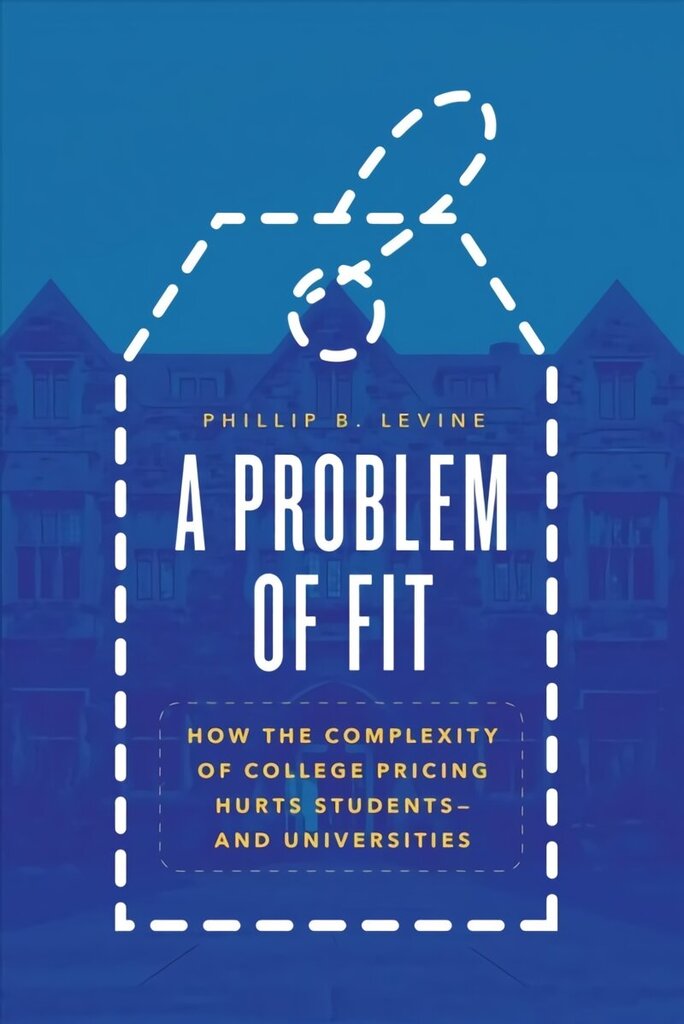
| Autor: | Phillip B. Levine |
| Lehekülgede arv: | 176 |
| Ilmumisaasta: | 2022 |
| Kauba ID: | 12794961 |
"A college education doesn't come with a sticker price. Maybe it should. Millions of Americans miss out on the economic benefits of a college education because of concerns around the costs. Financial aid systems offer limited help and produce uneven distributions. In the United States today, the systems meant to improve access to education have added a new layer of deterrence. In Mismatch, economist Philip B. Levine examines the role of financial aid systems in facilitating (and discouraging) access to college. If markets require prices in order to function optimally, then the American higher-education system--rife as it is with hidden and variable costs--amounts to a market failure. It's a problem of price transparency, not just affordability. Ensuring that students understand exactly what college will cost, including financial aid, could lift the lid on not only college attendance for more people, but for greater representation across demographics and institutions. As Levine illustrates, our conversations around affordability and free tuition miss a larger truth: that the opacity of our current college-financing systems is a primary driver of inequities in education and society. Mismatch offers a bold, trenchant new argument for an educational reform that is well within reach"--
A critical examination of the complex system of college pricing—how it works, how it fails, and how fixing it can help both students and universities. How much does it cost to attend college in the United States today? The answer is more complex than many realize. College websites advertise a sticker price, but uncovering the actual price—the one after incorporating financial aid—can be difficult for students and families. This inherent uncertainty leads some students to forgo applying to colleges that would be the best fit for them, or even not attend college at all. The result is that millions of promising young people may lose out on one of society’s greatest opportunities for social mobility. Colleges suffer too, losing prospective students and seeing lower enrollments and less socioeconomic diversity. If markets require prices to function well, then the American higher-education system—rife as it is with ambiguity in its pricing—amounts to a market failure. In A Problem of Fit, economist Phillip B. Levine explains why institutions charge the prices they do and discusses the role of financial aid systems in facilitating—and discouraging—access to college. Affordability issues are real, but price transparency is also part of the problem. As Levine makes clear, our conversations around affordability and free tuition miss a larger truth: that the opacity of our current college-financing systems is a primary driver of inequities in education and society. In a clear-eyed assessment of educational access and aid in a post-COVID-19 economy, A Problem of Fit offers a trenchant new argument for educational reforms that are well within reach.
| Kauba ID: | 12794961 |
| Kategooria: | Ühiskonnateemalised raamatud |
| Tootepakendite arv: | 1 tk. |
| Paki suurus ja kaal (1): | 0,3 x 0,3 x 0,1 m, 0,2 kg |
| Kirjastus: | The University of Chicago Press |
| Raamatu keel: | Inglise keel |
| Kaane tüüp: | Täpsustamata |
| Vorming: | Traditsiooniline raamat |
| Tüüp: | Täpsustamata |
| Raamat väljavõttega: | Ei |
| Autor: | Phillip B. Levine |
| Lehekülgede arv: | 176 |
| Ilmumisaasta: | 2022 |
Toodete pildid on illustratiivsed ja näitlikud. Tootekirjelduses sisalduvad videolingid on ainult informatiivsetel eesmärkidel, seega võib neis sisalduv teave erineda tootest endast. Värvid, märkused, parameetrid, mõõtmed, suurused, funktsioonid, ja / või originaaltoodete muud omadused võivad nende tegelikust väljanägemisest erineda, seega palun tutvuge tootekirjeldustes toodud tootespetsifikatsioonidega.